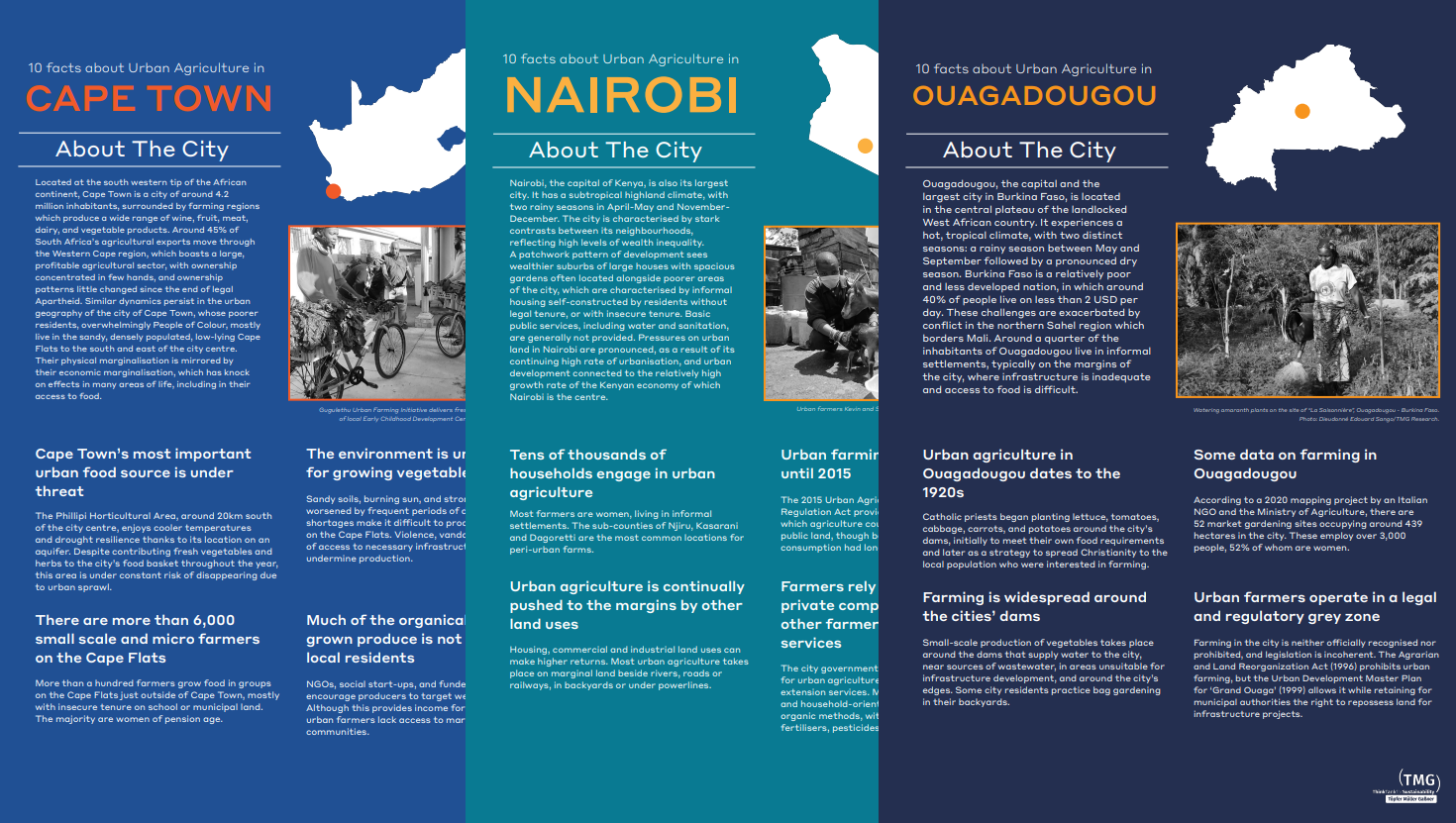Urban Agriculture in Three African Cities
Factsheets published on farming in Cape Town, Nairobi and Ouagadougou

Agricultural production is traditionally associated with rural areas. Urban and peri-urban agriculture typically play only minor roles in discussions about urban development, while policies for food security in cities tend to conceive of them as merely sites of food consumption. Yet achieving food security, including in the world's cities, requires us to focus on its four dimensions (availability, access, utilisation, and stability) in both rural and urban food systems. Neglecting the urban dimension of food production diminishes our capacity to solve the challenge of food insecurity, as the many opportunities and benefits of urban farming - which are broader even than the provision of food itself - are missed.
These issues occupy the Urban Food Futures programme at TMG, which examines the role of city planning, technological development, and civic engagement in unlocking the potential of urban and peri-urban agriculture to contribute to food security, as well as to other human development goals, in Africa. Working with partners in Cape Town (South Africa), Nairobi (Kenya) and Ouagadougou (Burkina Faso), we provide evidence-based analysis on how to strengthen social and technological innovations across the food production, processing, and marketing chain.
Three newly-published factsheets present an overview of urban agriculture in each of the three cities. The cities differ in several crucial respects, related in part to the different levels of economic and industrial development in each country, including in the food sector. In South Africa for example, food systems are highly corporatised, but this is not the case in Kenya and Burkina Faso. Urban food producers in Cape Town therefore face a distinct set of challenges, partly related to the highly unequal distribution of wealth and land which persists long after the end of legal Apartheid, and which poses high barriers of entry to the formal economy. The legal and regulatory regimes relating to urban agriculture also differ in each city.
Yet across the three cities many similarities emerge. Urban land is expensive, and urban farmers are continually under pressure from other land uses. In this context - sometimes exacerbated by the uncertain legal status of urban farming itself - urban farmers tend to use marginal or otherwise unwanted land, with no tenure or insecure tenure, or small plots of privately accessible land around the home. Farmers lack vital inputs, including adequate supplies of water. Political will and consistent support, including the provision of land and inputs, is needed for urban agriculture to find a secure footing.
Such political will should be based on a holistic understanding of food systems and of the benefits of urban agriculture beyond the simple provision of calories. The Covid-19 pandemic underlines the urgent need to put urban food security on a more secure footing. In each of the three cities urban farmers lost incomes and access to markets, in the context of social crises with effects beyond the food system. More broadly the pandemic underlines the fact that the nature of urban food systems is intertwined with the social, economic and political circumstances of each city: food insecurity in African cities requires political solutions that respond to all of these elements in a holistic fashion.
The three factsheets can be read here:
